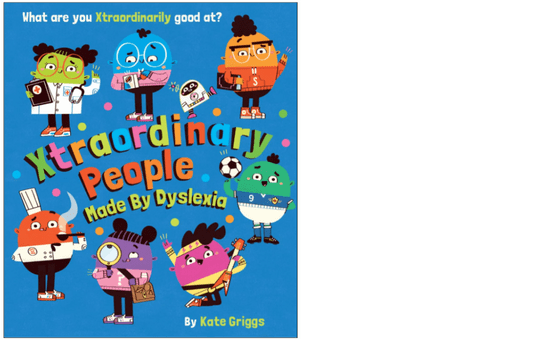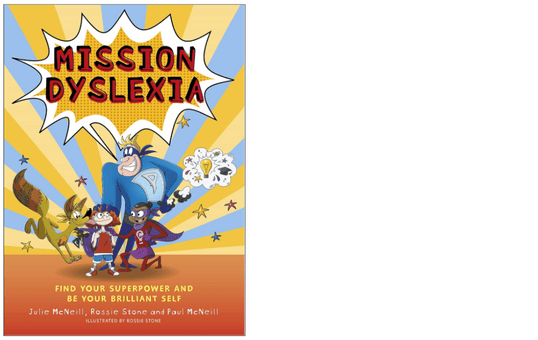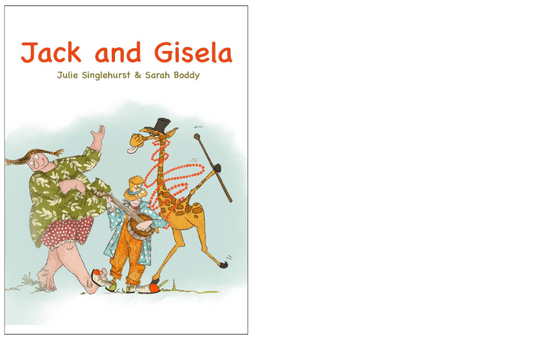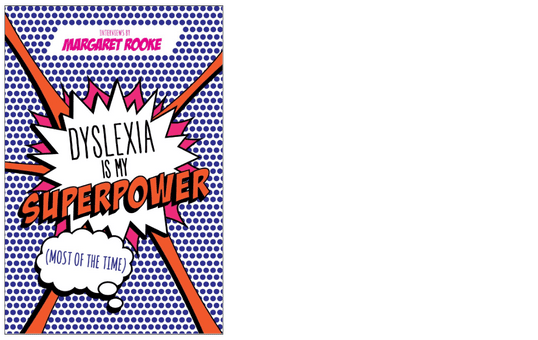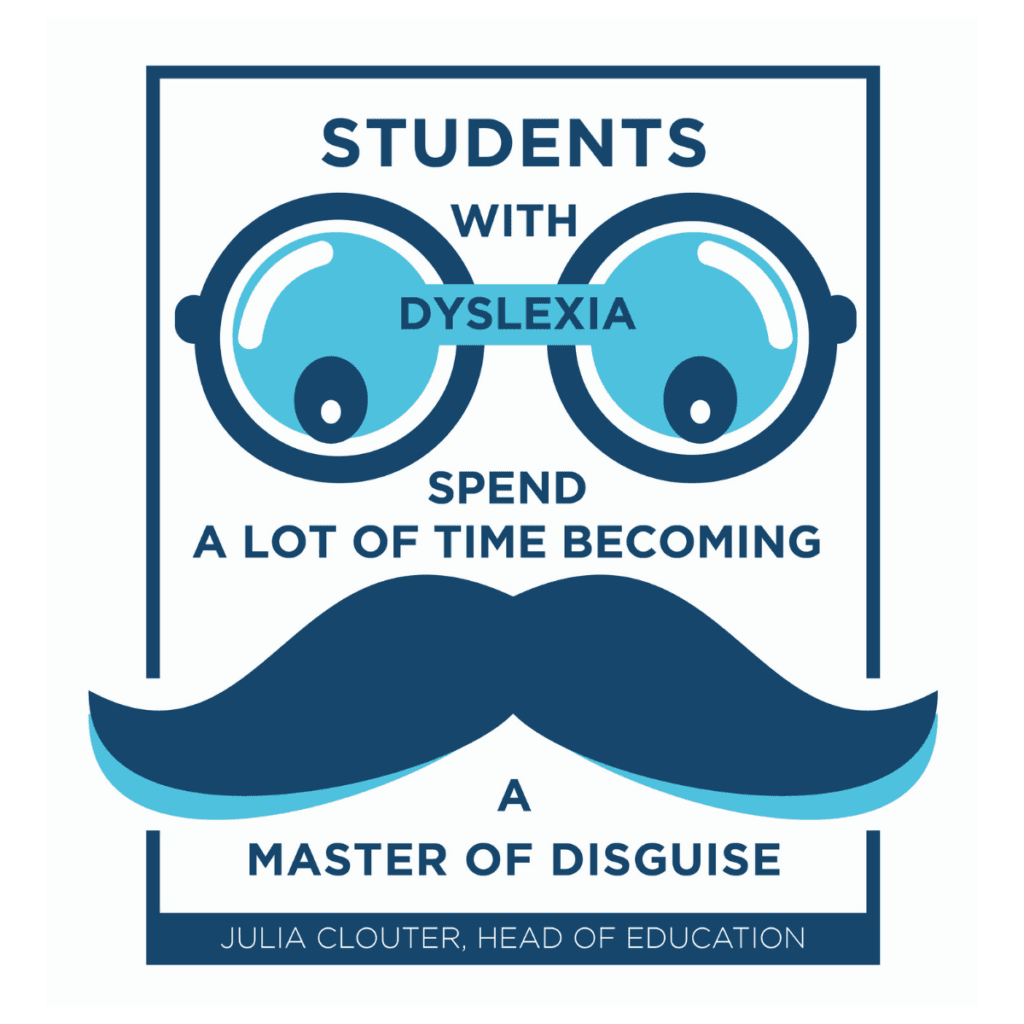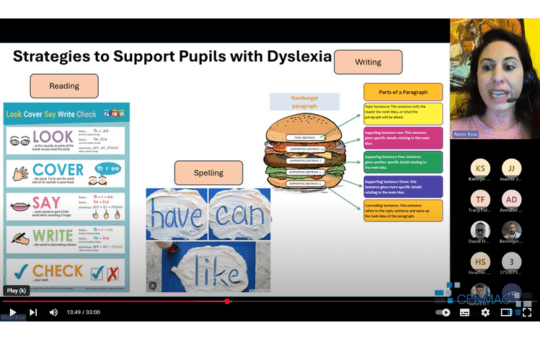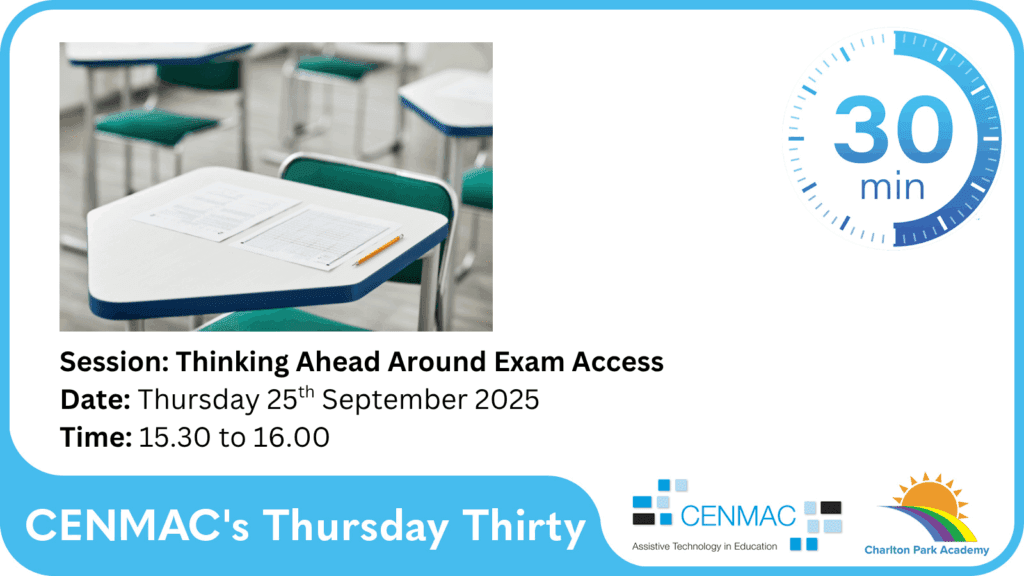Dyslexia Awareness Week #DAW25
Dyslexia: Raising the Volume is the theme for Dyslexia Awareness Week 2025 (#DAW25), Monday 6 October – Sunday 12 October 2025.
There are some great resources available on the British Dyslexia Association (BDA) website to help spread awareness with interactive powerpoints to use at assembly and fun quizzes.
Did you know that One in 10 people have dyslexia? So, in a class of 30 children, on average 3 may have dyslexia!
We have also complied more resources and training sessions below to help teams supporting children and young people with dyslexia.
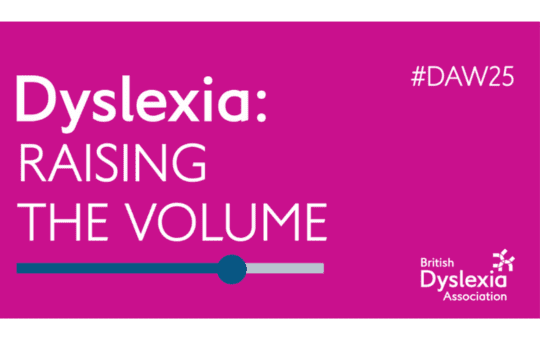
Dyslexia and Mental Health
In this useful piece Julia Clouter, Education and Assistive Technology Adviser at Scanning Pens talks about how students with dyslexia spend a lot of time becoming a master of disguise. She discusses five key issues around dyslexia and mental health that we should try to better understand:
- Generalised Anxiety
- Poor self-image and self-confidence
- Weak self-esteem
- Challenging, self-defeating or self destructive behaviours
- Not feeling a sense of belonging
She shares how assistive technology is not the cure-all for dyslexia, but it can be incredibly helpful by enabling independent work and reducing dependency on others.
See Dyslexia Differently
This video from the BDA looks at misconceptions about dyslexia and sheds light on the real challenges dyslexic children and young people face while also acknowledging their strengths and potential.
Watch the BDA Video – See Dyslexia Differently
Recognising and supporting children and young people with dyslexia
In this recorded sesssion CENMAC’s Dyslexia Assessor and Advisory Speech and Language Therapist Abeer Essa talks about dyslexia and how to recognise if a child or young person might be dyslexic. She also shares strategies to support them.
CENMAC’s Thursday Thirty
Training and Information Sessions
We use a range of assistive technologies to support children and young people with dyslexia.
On Thursday afternoons throughout term time we run live 30 minute training and information sessions giving you the opportunity to listen to product specialists and ask them questions.
Take a look at what’s coming up in the Autumn term:

Inspiration: Harnessing the creativity of nonlinear thinkers to produce better writing outcomes
Recorded: Thursday 4th September 2025
About this session: The expected note taking and writing process can feel restrictive. We are taught to plan and compose our writing linearly – introduction, body, and conclusion. For individuals with neuro differences and cognitive challenges, this sequence may be limiting, as their ideas don’t always flow in straight lines. They describe themselves as nonlinear, creative thinkers.
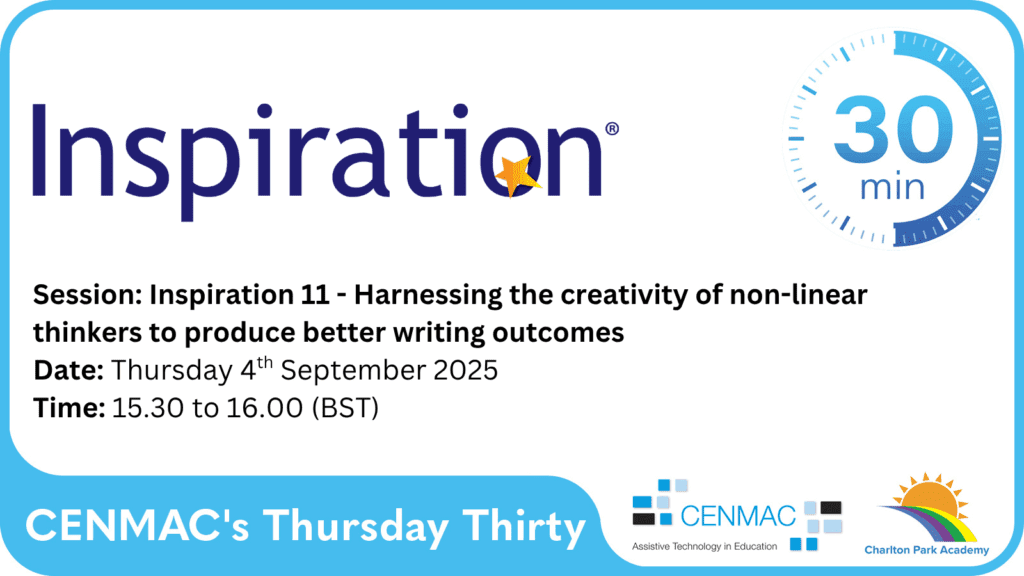
Thinking Ahead Around Exam Access
Recorded: Thursday 25th September 2025
About the session: Organising access arrangements for exams can be difficult. Throw Assistive Technology into the mix and there is the potential for some students to miss out on arrangements that may better support their needs, because their teachers are either unaware of what assistive technologies are available or unsure of whether they would contravene the rules.
CENMAC Advisory Teacher Maureen De Longhi provides useful information about organising access arrangements for the 2026 SATs, Key Stage 2 tests and the GCSE exams.
Introducing the C-Pen Reader 3: Making Reading Accessible for All Students
Date: Thursday 2nd October 2025
Time: 15.30 to 16.00 (BST)
About this live online session: We dive into the new features of latest C-Pen and breakdown how it can support students with their learning journey.
Presented by Neil Ryland, Business Development Executive, Scanning Pens
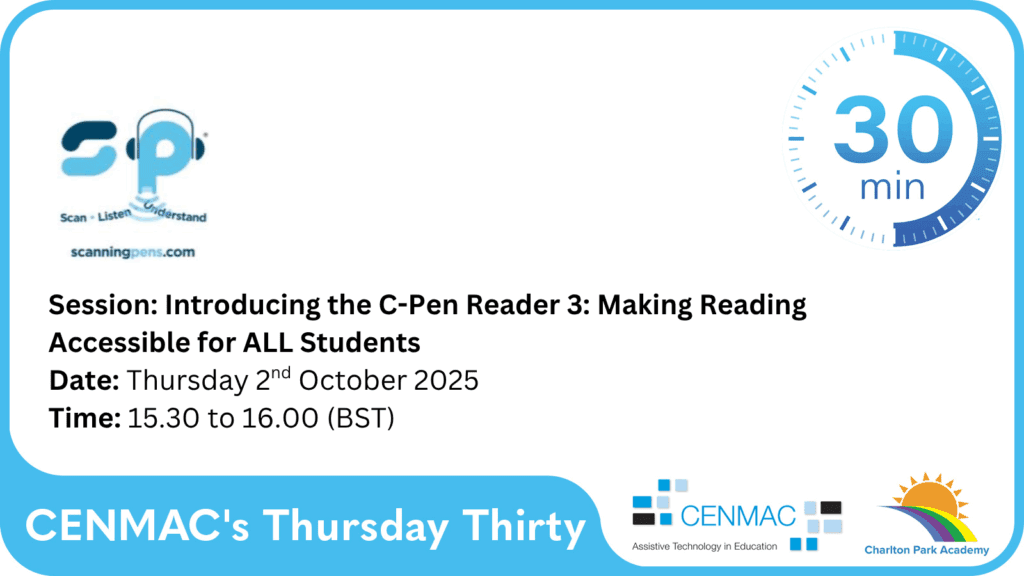
Empowering SEND learners with AYOA – how to kickstart the writing process with Mind Mapping
Date: Thursday 9th October 2025
Time: 15.30 to 16.00 (BST)
About this live online session: Discover how Ayoa’s intuitive mind mapping tools can help SEND learners overcome barriers to writing. This practical session will explore strategies for using visual organisation to support idea generation, planning, and confidence in writing. Ideal for teachers, SENCos, and support staff looking to kickstart the writing process in an inclusive, accessible way.
Join James Wright, Product Specialist at AYOA for this interesting session.
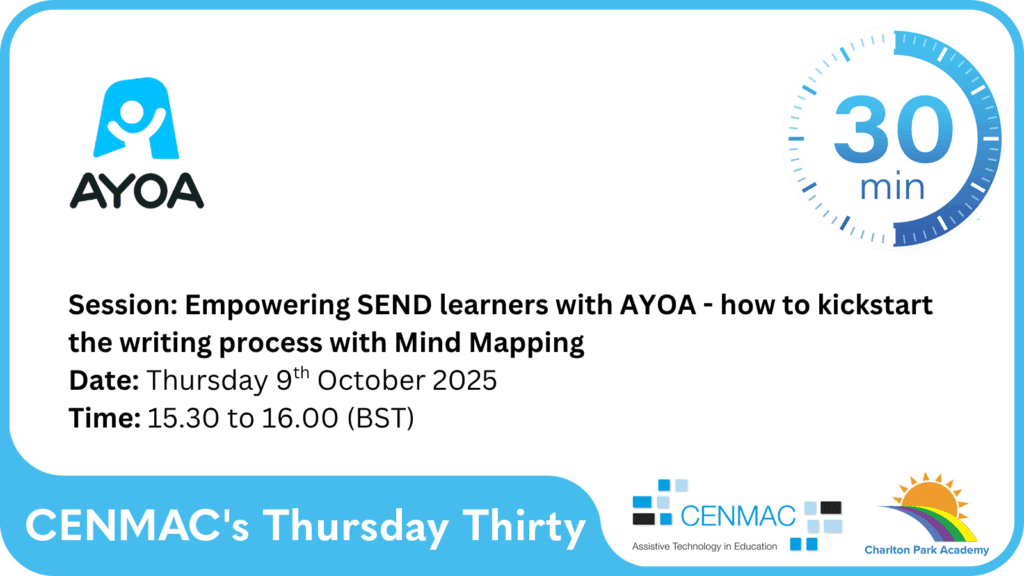
Literacy Toolbox Approach
The Literacy Toolbox Approach introduces a range of physical tools that scaffold literacy skills including reading, speaking, writing and listening. They can be supported with simple resources that enable learners to work independently.
Head of Education at Scanning Pens Julia Coulter has put together some information and short videos to show how these simple resources such as pencil grips and page holders can really help the 25% of learners with literacy differences.
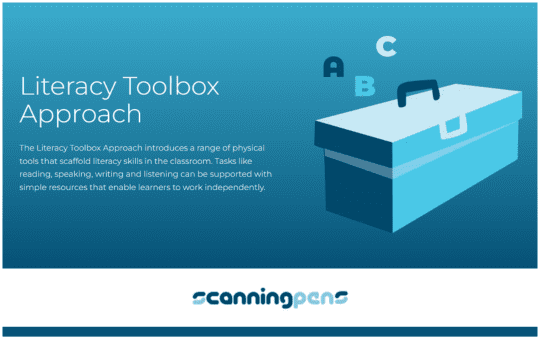
Literacy Toolbox Approach
Essential Considerations for Dyslexic Student Starting University
Dyslexia UK have made a list of essential considerations for Dyslexic Students Starting at University. These considerations would also be useful for dyslexic students starting in 6th form.
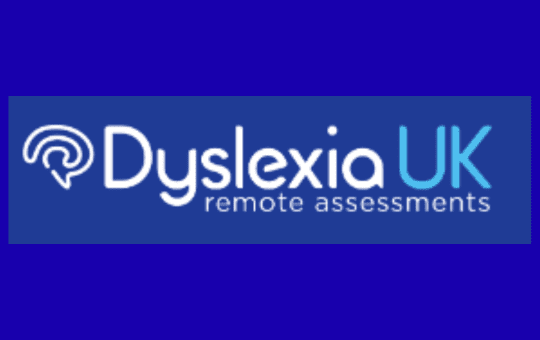
Dyslexia UK
Nessy Dyslexia Resources
Nessy are advocates for children with dyslexia and have some very useful information to help parents and teachers to learn the basics of dyslexia and the most common signs including:
- What is Dyslexia? Find out the basic facts
- How to explain Dyslexia to a child
- Common difficulties caused by dyslexia
- Dyslexia myths

Image courtesy of Nessy illustrates how a person with dyslexia
might interpret the word “word”, as “morb”
Books to support children and young people with dyslexia
Here are some of the great books that the CENMAC team uses to support children and young people with dyslexia.
Xtraordinary People: Made By Dyslexia
By Kate Griggs (Author), Richard Branson (Contributor), Steven Woods (Illustrator)
Dyslexic people think differently. This different way of thinking makes us ‘Xtraordinarily’ good at certain things. This book will help you discover the seven different types of ‘Xtraordinary’.
Mission Dyslexia: Find Your Superpower and Be Your Brilliant Self
by Julie McNeill (Author), Paul McNeill (Author), Rossie Stone (Author, Illustrator)
Meet Creatia, Persisto and Willforce. They are strong, determined and creative, and they represent the strengths that dyslexia can bring to your life. Together they encourage you to use your skills and talents to be confident in what you do – and shrink the villain Mr Dyspicibilia!
Jack and Gisela
by Julie Singlehurst (Author), Sarah Boddy (Illustrator)
“Jack and Gisela” is a game-changer for supporting learners with dyslexia in their reading journey. With a unique combination of an engaging story, vibrant illustrations (carefully selected to aid meaning-making), and helpful prompts for the guiding adult (so they can teach effective reading strategies), this book makes learning fun and accessible.
Dyslexia is My Superpower (Most of the Time)
By Margaret Rooke (Author)
In more than 100 interviews, children and young adults reveal their personal tips and tactics for honing the creative benefits of dyslexia, enabling them to thrive in school and beyond. Strategies include ways to develop confidence and self-belief.
